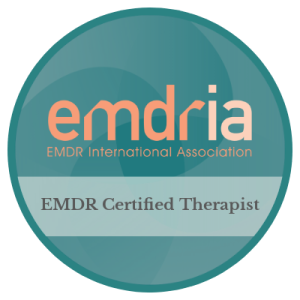Introduction
Selecting the right therapist is a pivotal step towards your emotional well-being and personal growth. Just as no two individuals are alike, therapists have their unique approaches and specialties. Finding a therapist who resonates with your needs, preferences, and goals is essential for a productive and fulfilling therapeutic journey. In this blog, we’ll explore the steps to take when selecting the right therapist for you, ensuring that you embark on a path of healing and transformation that feels aligned and supportive.
Understanding Your Needs
- Identify Your Goals: Before searching for a therapist, clarify what you hope to achieve through therapy. Whether it’s managing anxiety, improving relationships, or personal growth, knowing your goals will guide your search.
- Consider Your Preferences: Think about the qualities you’d like in a therapist. Do you prefer someone of a certain gender, age, or cultural background? These preferences can impact your comfort level during sessions.
Types of Therapy
- Research Therapeutic Approaches: Familiarize yourself with different therapeutic approaches. Some examples being: Eye movement desensitization and reprocessing (EMDR); Cognitive Behavioral Therapy (CBT); Psychodynamic Therapy, Mindfulness-Based Therapy, etc. Choose an approach that resonates with your needs.
- Specialties and Expertise: Some therapists specialize in areas like trauma, anxiety, depression, or relationship counseling. Seek out therapists who have experience in the specific areas you’re looking to address.
Finding Potential Therapists
- Ask for Recommendations: Reach out to friends, family, or healthcare professionals for recommendations. Personal referrals can offer valuable insights.
- Online Directories: Utilize online therapist directories to search for therapists in your area. These platforms often provide information about therapists’ specialties, approaches, and availability. To find a provider locally in Minnesota, we recommend: https://fasttrackermn.org/
Narrowing Down Your Options
- Check Qualifications: Verify that the therapist is licensed and accredited in their field. This ensures they have undergone proper training and adhere to ethical guidelines.
- Read Reviews: Browse online reviews or testimonials to gauge the experiences of other clients with the therapist.
Initial Consultation
- Contact Potential Therapists: Reach out to a few therapists and schedule initial consultations. Many therapists offer free or low-cost consultations to help you gauge if you’re a good fit.
- Ask Questions: Prepare questions about their approach, experience, and how they typically work with clients. This conversation can help you assess their compatibility with your needs.
Consider the Connection
- Trust Your Gut: During the initial consultation, pay attention to how you feel when speaking with the therapist. Trust your instincts and consider whether you feel comfortable and understood.
- Effective Communication: A good therapist is one who listens attentively, shows empathy, and communicates effectively. Their ability to create a safe and nonjudgmental space is crucial.
Affordability and Logistics
- Check Fees and Insurance: Inquire about the therapist’s fees and whether they accept insurance. Consider your budget and financial constraints.
- Location and Availability: Choose a therapist whose location and availability align with your schedule. Accessibility can impact your commitment to regular sessions.
Conclusion
Selecting the right therapist is an investment in your well-being and personal growth. By understanding your needs, researching therapeutic approaches, and considering factors like specialties and compatibility, you can make an informed decision. Remember that therapy is a collaborative journey, and finding a therapist who aligns with your goals and values can empower you to navigate challenges, gain insights, and cultivate positive change in your life.



